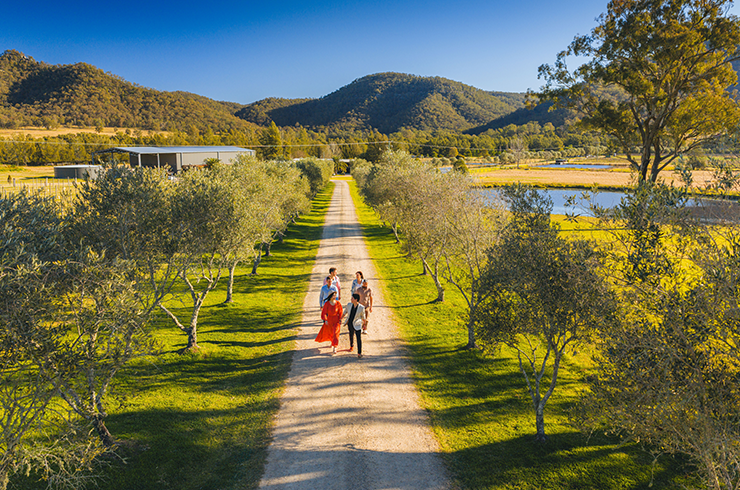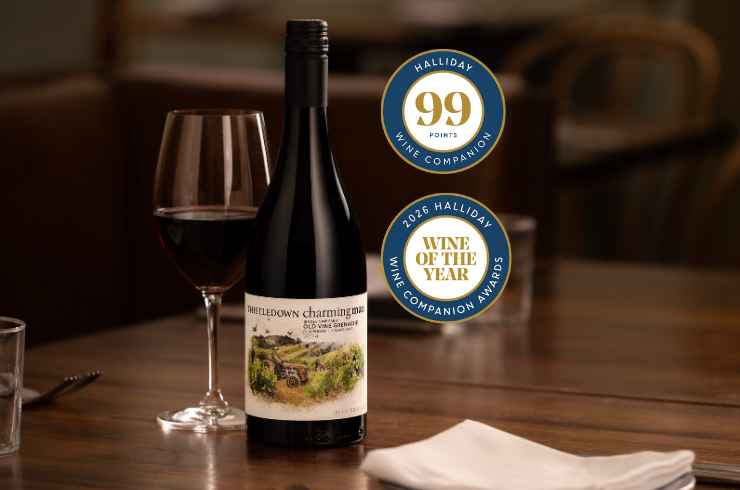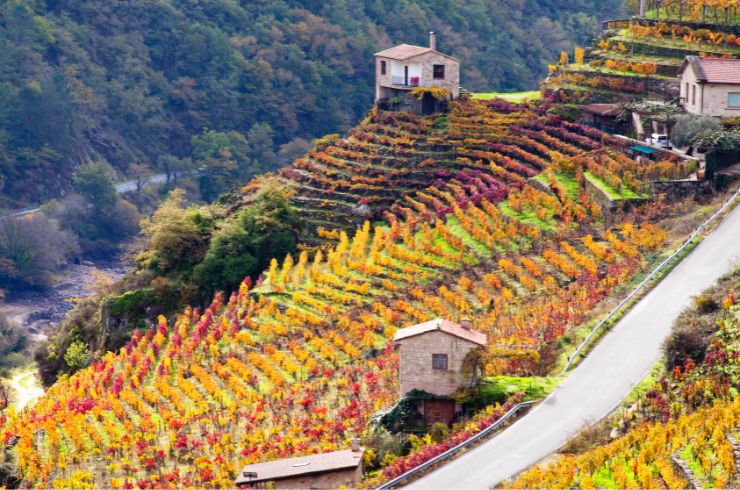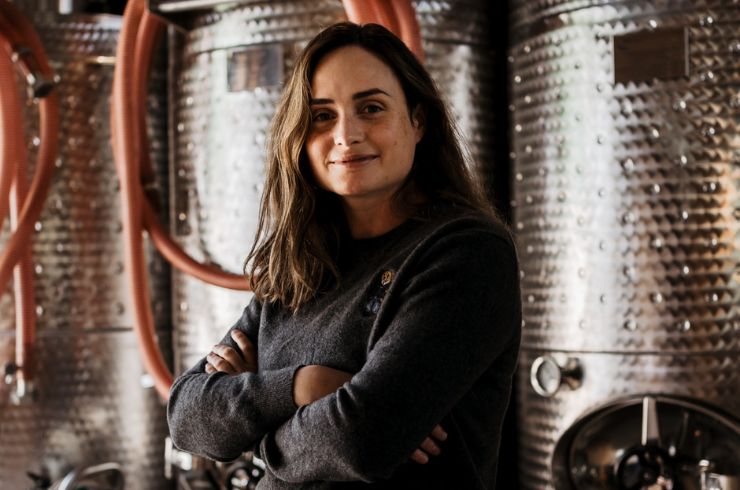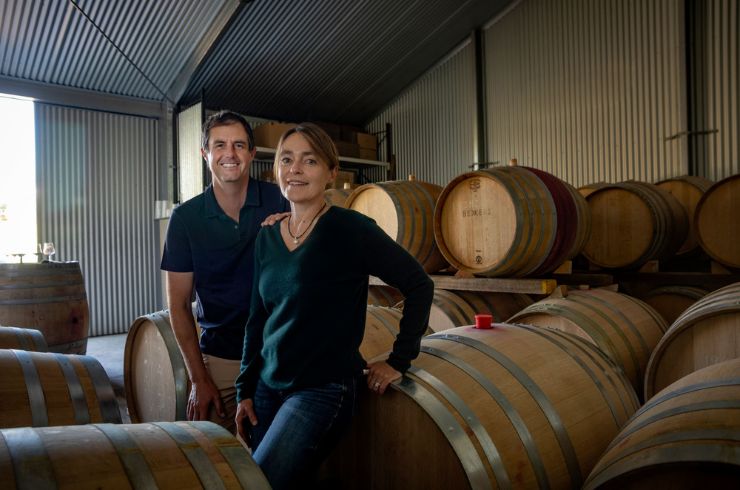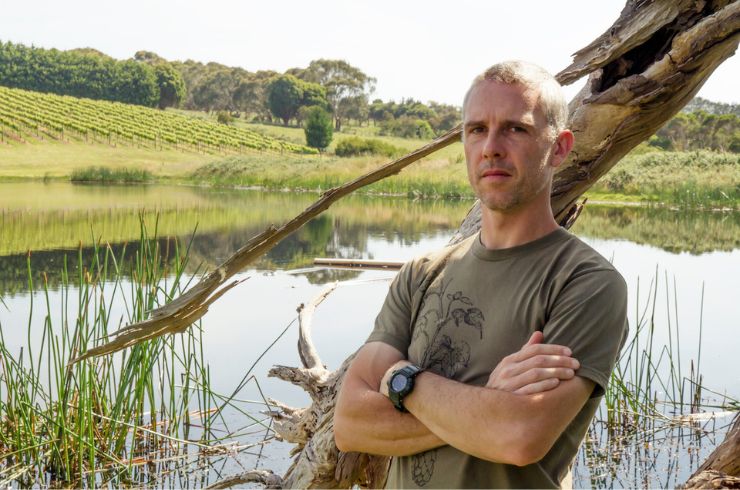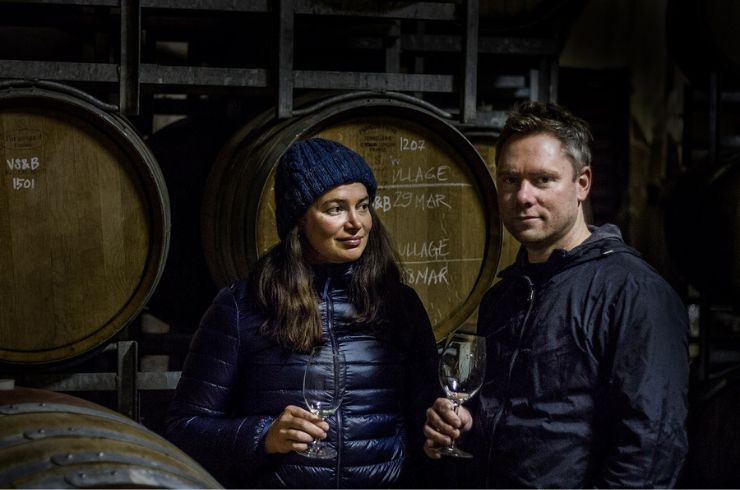“We always put our wines in blind, and I always feel nervous about it, but you have to be able to do that,” says Amelia Nolan, Alkina’s winemaker and general manager. “Tasting blind is the only way to get the truth. And so that's what we do. You have to have the confidence to do it, be humble enough to do it. If they don't stack up, then you know, and you're not just believing your own bullshit. It's the only way.”
The Alkina Grenache Assembly evolved out of internal tastings that Nolan and Dan Coward, head of sales and marketing, were already running. Benchmarking is ongoing, but annually they would source revered and often scarce examples from around the world, as well as feted local bottlings.
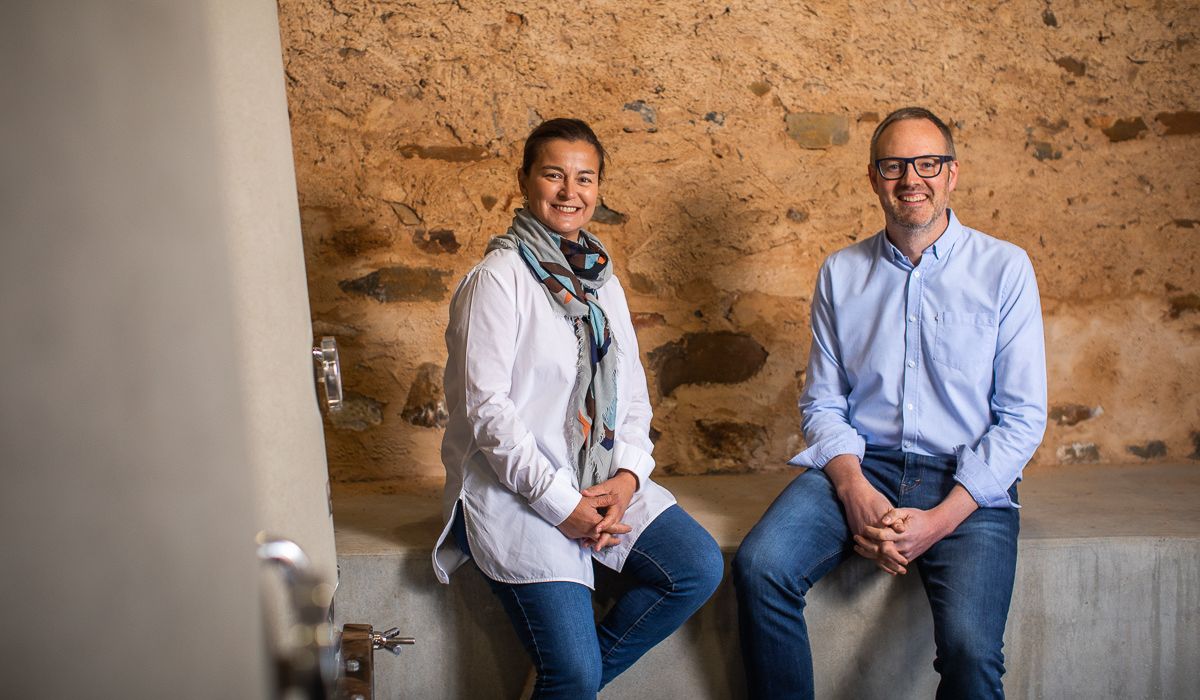
There was a lot of wine left over, so why not invite a cross section of the industry – importers, winemakers, press, wine buyers, distributors – along to reflect on all things grenache? Why not indeed. “We wanted to include more people and have an open chat and conversation about where Australia was heading within that repertoire,” says Nolan. “It's an opportunity to learn, to taste, to think… I've always wanted Alkina to be a place for thinkers. And I always want to have open and honest conversations.”
This year, the guests included Amelia Jukes, doctor of terroir Pedro Parra (Alkina’s consultant on all matters geological), Yangarra’s Peter Fraser, Skye Salter (Paralian), Belinda van Eyssen (The Cutting), wine writers Nick Ryan and David Sly, Philip Rich, Leanne Altmann (Trader House Group), Elle Foster (Botanic Restaurant), Sam Taylor (The Ed), Meira Harel (Tasting Australia), Jeremy Prus (Lalla Rookh and Lieu-Dit Selections), and specialist Spanish importer Lachlan Barber (Cortez Imports).
It's a tasting with no commercial agenda, and the deck is never loaded to flatter. “Our friend over in the west, Jeremy Prus, has very kindly been able to come over each year with a bottle of Rayas to give us that global, ultimate benchmark,” Nolan says. “It's impossible to get, and we need to understand why, and what it is that people find so fascinating. And while it's different to everything else in the lineup (everyone always knows which one is Rayas), when you get a good bottle, you get a completely fascinating, intriguing wine – it allows you to see what grenache can be.”
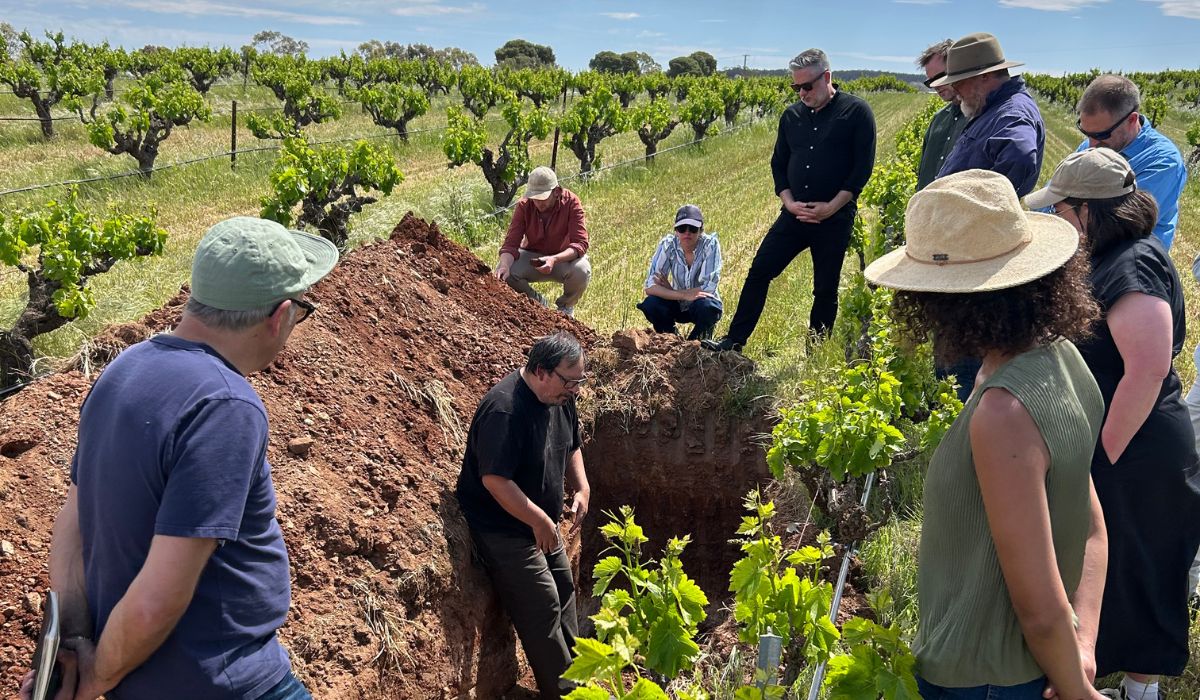
Nolan was certainly not pushing any points or guiding opinions, letting the wines narrate the day. However, in my notes, the Australian wines in the varietal grenache brackets were clearly the most consistent and critically accounted for most of my highlights, although with wines from Sadie Family and Víticola Mentridana also notably shining, and in many ways showing a kinship with the local wines in their transparency and finesse.
“There was an excitement and energy among all those tasting,” says Jukes, who is a proactive advocate for the best of Australian wine in the UK, working to change a stubborn perception there that Australian wine is mostly unserious from a quality perspective, and certainly couldn’t challenge the great wines of the world. “It feels like we’re on the cusp of a significant turning point in the history of Australian wine, and, most importantly, for the Barossa Valley and McLaren Vale.”
Much of Australian wine’s success in the second half of the 20th century rode on the back of a technical revolution and the rigorous education of winemakers. That helped to significantly reduce faulty wines in the market, but Australian wine also became a target, with critics arguing that many wines became too sanitised, stripped of soul. The tasting underscored how essential technical knowledge is, but also how it has helped to elevate these wines to lucidly convey site expression. Nothing occludes terroir like faults.
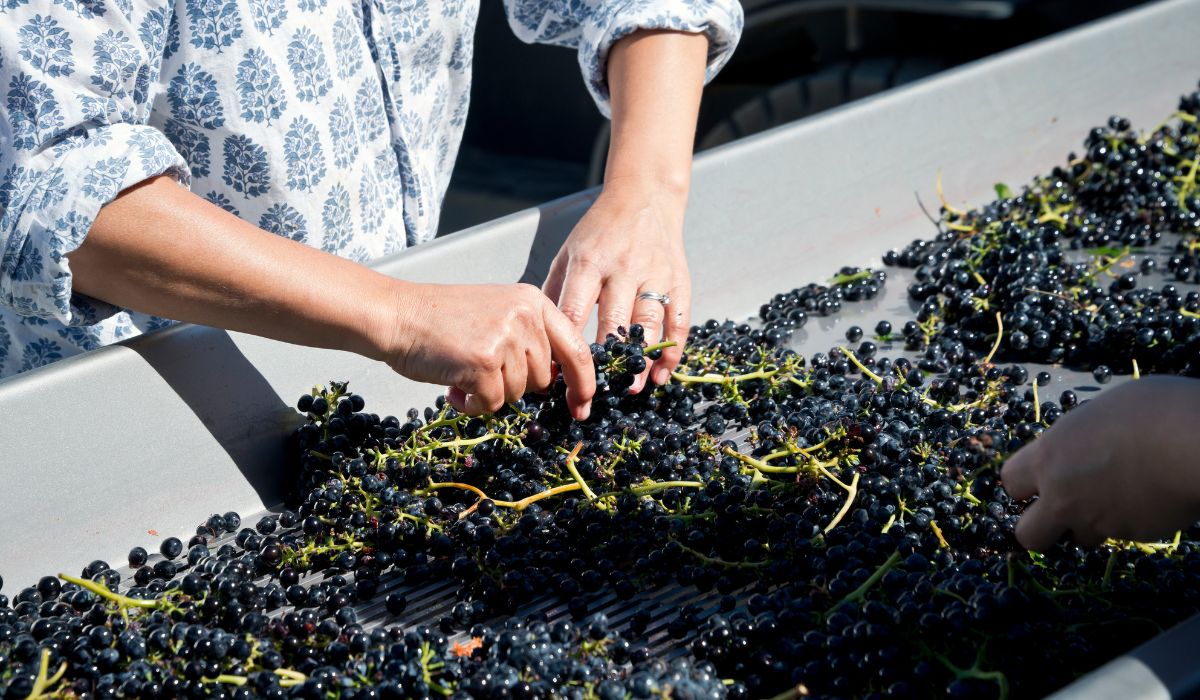
Well, heavy-handed winemaking does, but that was also expectedly, but still notably, absent from most of the wines. And that was universally true of the local wines. “The South Australian grenaches laid their vineyards out bare for judgment and were utterly captivating with their discreet charm, subtle power and luminosity," Jukes adds. “The tasting was incredibly thought provoking and enjoyable, a vital platform to showcase the clarity and brightness that South Australian grenache is capable of. There’s no hiding from the profound terroir signatures. They appear to have postcode accuracy like no other global style of the grape.”
For Nolan, the forum is as important as their benchmarking, and that while grenache is front and centre, the broader mission of elevating Australian wine both here and internationally is critical. “I just love the way this year we had people talking from different viewpoints,” said Nolan. “It's just an opportunity to get that spectrum of thinking from everyone… from all of us who are stakeholders in the business of trying to further the reputation of buying Australian wine, which is what we all want, isn't it?”
Jukes is taking not just grenache to the UK but hosting tastings and events that highlight the best of Australia across varieties and regions. Along with chardonnay, I would argue that grenache has the chance to significantly shift the global perspective on Australian wine at a more premium level. The pedigree of the wines, the diversity and the sense of place in them is truly thrilling. On that, Jukes concurs. “Dynamic estates, such as Alkina, Yangarra, S.C. Pannell, Ministry of Clouds and Willunga 100, among others, are pioneering a new and compelling chapter for Australia’s fine wines, and it’s incredibly inspiring.”
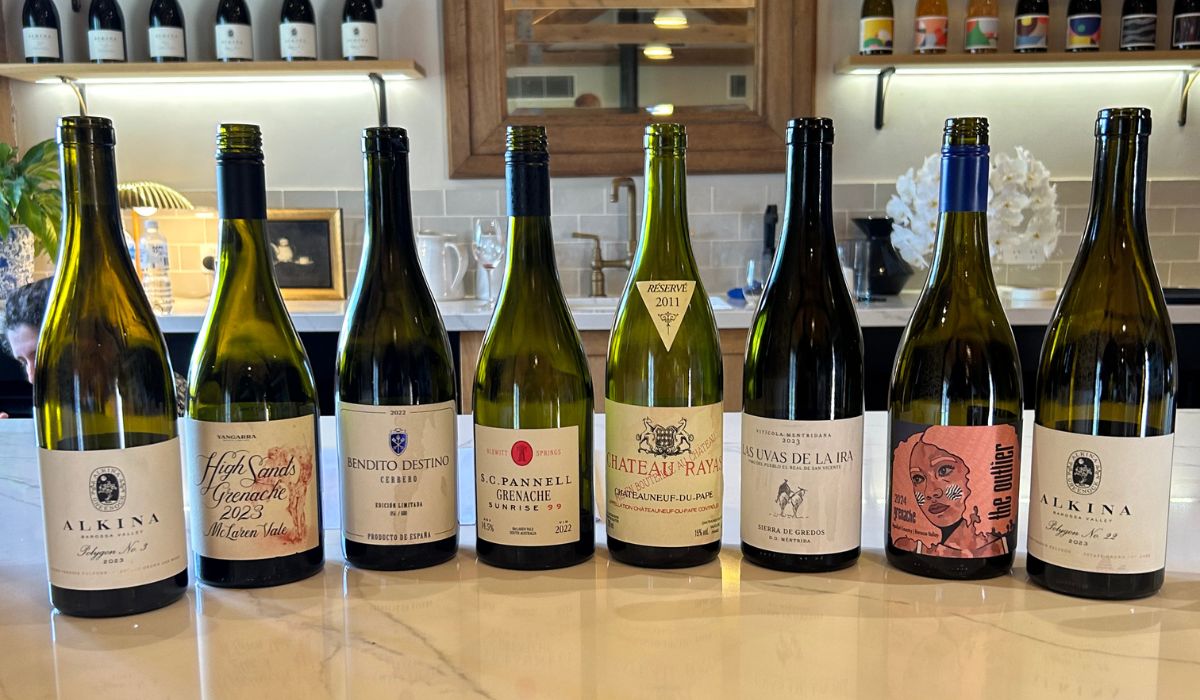
2025 Alkina Grenache Assembly Tasting
Bracket 1:
1. Paralian Marmont Vineyard Grenache 2024, McLaren Vale $48
2. Bodegas Frontonio El Jardin de las Iguales Garnacha 2021, Valdejalón, Aragón, Spain $450
3. Domaine Lefebvre d’Anselme Grenache 2022, Rhône Valley, France $60
4. Sadie Family Soldaat 2023, Piekenierskloof, South Africa $165
5. Comando G El Tamboril Garnacha 2022, Sierra de Gredos, Spain $500
6. Alkina Polygon No. 5 Grenache 2023, Barossa Valley $295
7. Venus la Universal Venus de la Figuera 2019, Montsant, Spain $120
8. Ministry of Clouds Silk & Stone Grenache 2023, McLaren Vale $75
Bracket 2:
1. Alkina Polygon No. 3 Grenache 2023, Barossa Valley $295
2. Yangarra High Sands Grenache 2023, McLaren Vale $300
3. Bendito Destino Cerbero Garnacha 2022, Sierra de Gredos, Spain $295
4. S.C. Pannell 99 Sunrise Grenache 2022, McLaren Vale $250
5. Château Rayas Châteauneuf-du-Pape Réservé 2011, Rhône Valley, France $2.5-3,000
6. Víticola Mentridana Las Uvas de La Ira 2023, Méntrida, Spain $70
7. The Cutting The Outlier Grenache 2024, Barossa Valley $38
8. Alkina Polygon No. 22 Grenache 2023, Barossa Valley $295
Bracket 3: (Grenache-dominant blends)
1. Tablas Creek Esprit de Tablas 2020, Paso Robles, California $175
2. Alkina Old Quarter 2023, Barossa Valley $100
3. Savage Wines Thief in the Night 2022, Piekenierskloof, South Africa $60
4. Domaine Charvin Châteauneuf-du Pape 2022, Rhône Valley, France $175
5. Domaine Gramenon Contre Couleur Côtes-du-Rhône 2022, Rhône Valley, France $115
6. Charles Melton Nine Popes 2021, Barossa Valley $105
7. Domaine Saint-Damien Gigondas La Louisiane 2023, Rhône Valley, France $70
8. Clos Mogador 2021, Priorat, Spain $250
Prices supplied by Alkina, with some approximations.
Subscribe to the Halliday Wine Companion Podcast
Hear from some of Australia's top winemakers and industry professionals as they share their stories and insights on the Halliday Wine Companion Podcast – including Pedro Parra. Listen here, or on your usual podcast platform, and remember to rate, share and subscribe so you never miss an episode.
Latest Articles
-
Travel
A Little Bit of Broke 2026: The roaming wine festival to book now
1 day ago -
Events
Exclusive wine event – Halliday Wines at AAMI Park
1 day ago -
Travel
A Spanish revolution: 12 wines that highlight the country's exciting offshore wine scene
2 days ago -
News
How Wine on Mars is building a fairer, more transparent landscape for Australian wine
2 Mar 2026
More from Marcus Ellis
-
From the tasting team
Future Perfect: Marcus Ellis looks at what lies ahead for McLaren Vale
24 Sep 2025 -
From the tasting team
Water stress: Marcus Ellis speaks with three producers from drought-stricken regions
3 Jul 2025 -
From the tasting team
Marcus Ellis on why sugar shouldn't be a dirty word when it comes to riesling
22 May 2025
